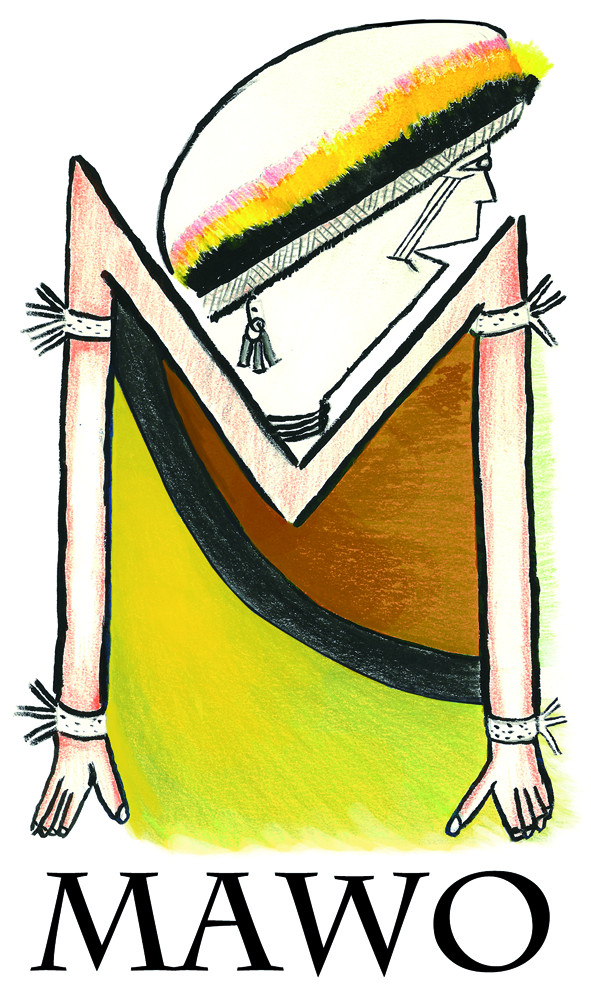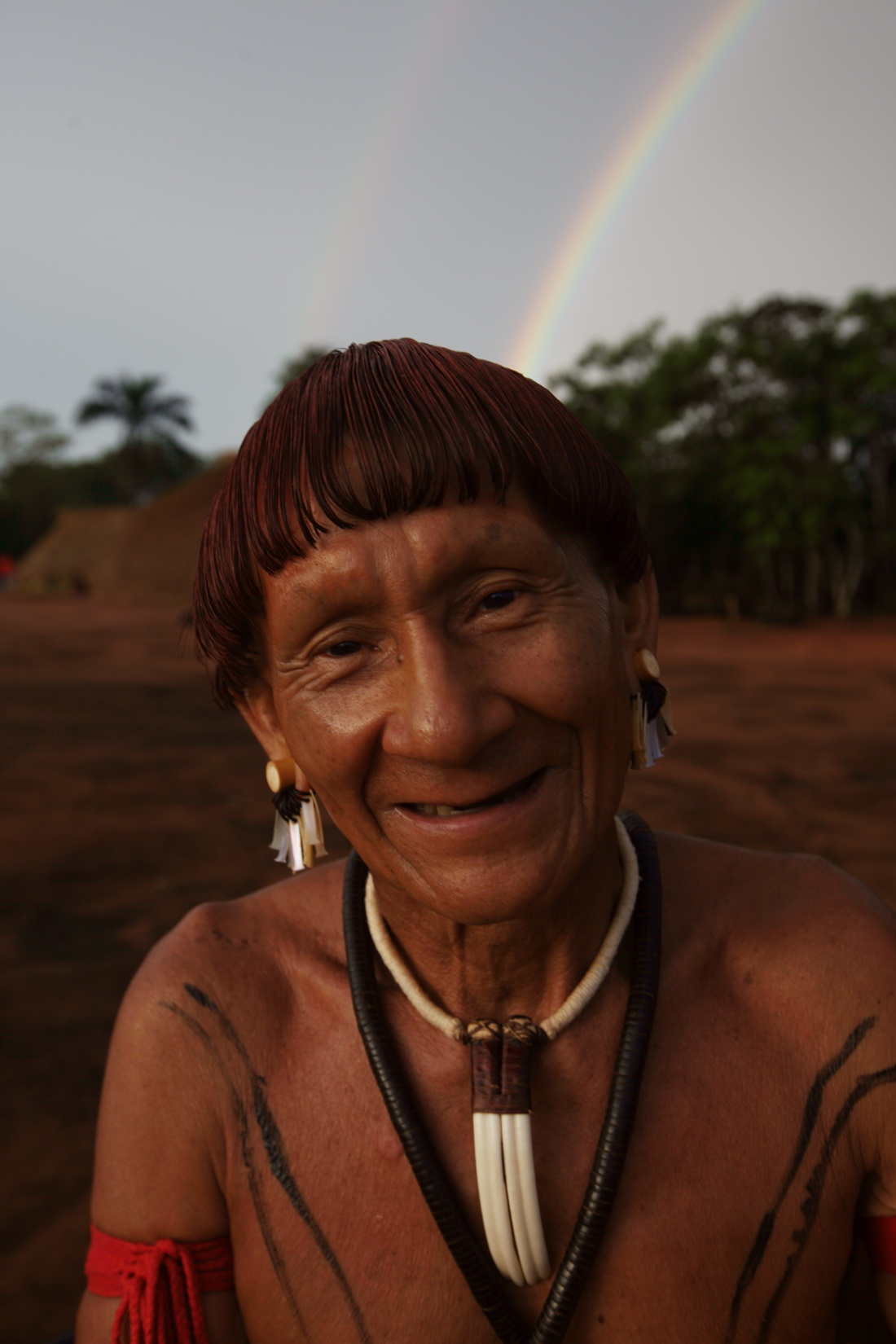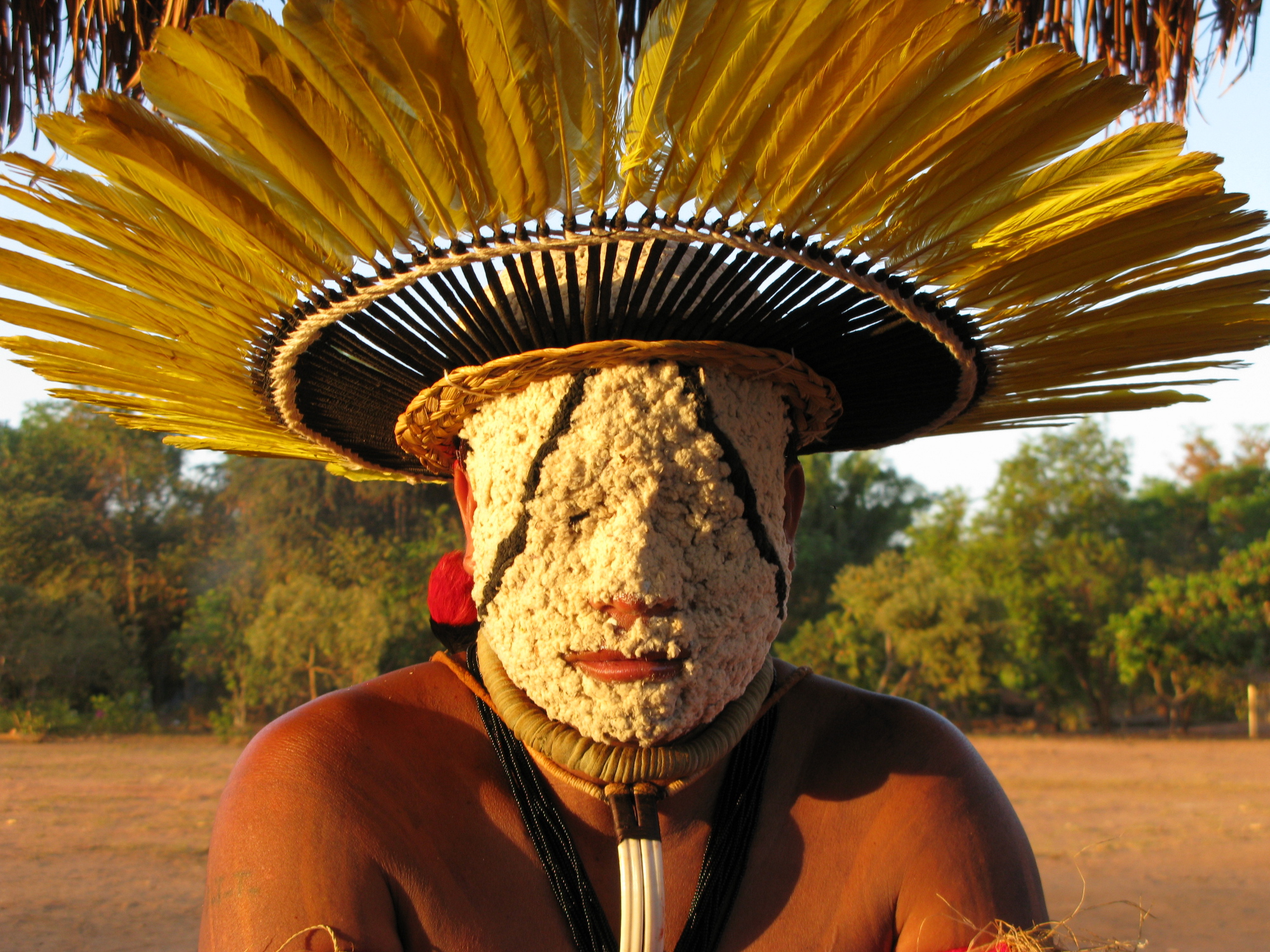MAWO - Ikpeng house of culture
The MAWO is the result of a project initiated in 2009 by the Ikpeng peoples Moygu Association and Instituto Catitu. The initiative resulted in the establishment of a culture house in the Moygu village, in the Xingu Indigenous Park, to host a documentation and research center and an audiovisual production center.
Kureko: The Ikpeng culture documentation center
“We will remember: ‘Oh, it is this work that is guarding our history, where we came from, where we are born, the source of our food, the source of water. This will all be stored forever. Our talk, the stories we tell.’ ” (Chief Melobô)
Prepared in the mother tongue from the criteria and categories that mark the Ikpeng worldview, the documentation center aims to encourage young people to value their language and the richness of their knowledge, creating new spaces for the transmission of knowledge and cultural practices and providing access to Ikpeng cultural heritage by current and future generations.


In order to spread this innovative experiment, we conducted over five years, the documentary “MAWO Project – Ikpeng House of Culture ” which depicts the deployment process, methodology and development of the Ikpeng Culture Documentation Centre to be shown to indigenous communities engaged in initiatives to promote their culture and the general public. Watch the movie.
By bringing together in a documentation center in the village all of the Ikpeng production – movies, photos, books, drawings, texts, and historical documents produced by filmmakers and external researchers, the community will have direct access to these materials.
The Documentation Center also has vast potential to support community cultural projects, whether in the production of their films, CDs and books, or in the pedagogical support to the activities of indigenous schools or even as support for environmental projects.
“For us, MAWO is a meeting point between the new and tradition.”
The Database
To ensure that the database expresses the Ikpeng worldview, its creation had the involvement of teachers and students of the Ikpeng school, environmental management officers, staff of audiovisual production and elders.
The database was developed as part of the training of the team that went on to operate it so it could be accessed directly by the Ikpeng without depending on middlemen for its use.
MAWO
Since its creation workshops were held on video, sound capture, digital illustration and initiating and creating an Ikpeng site (www.ikpeng.org) from ideas, drawings and texts produced by young filmmakers, land and health agents and members of the Moygu Association. The Ikpeng filmmakers made the documentary Sound Tximna Yukunang (Sound Recording) on the initiation ritual of Ikpeng children and the CD Yumpuno Eremrï with the songs of this ritual. Watch more.
The project was sponsored by the Petrobras Cultural Program and the PDPI (Project Statement of Indigenous Peoples / Ministry of Environment); it had the support of the Embassy of Norway and also had the partnership of the Socio-Environmental Institute and the Indian Museum (Documentation Project of Cultures and Indigenous Languages).
From 2013, with the support of the Institute of Historical and Artistic Heritage – IPHAN and the Embassy of Norway, Instituto Catitu continued its project to develop the Documentation Center: cataloging the Ikpeng collection, youth empowerment for the administration of the database and management of the documentation center, and training of teachers and students of the Ikpeng school to use the database as a research tool.

The Ikpeng people
The Ikpeng live in the Xingu Indigenous Park in Mato Grosso State, since 1967. The first official contact between them and the national society occurred in 1964 on the Jatoba River. Because they are being threatened by miners who invaded their territory or contracted diseases, the Villas Boas brothers convinced the 52 Indians who had left the group to move to the Park. Almost 50 years later, despite the exile of their ancestral land, the Ikpeng continue to speak their own language and to celebrate their festivals, but are worried about the weakening of the transmission of their knowledge and cultural practices.
On the one hand, the main community ritual specialists are aging, which threatens an important sourcecof this knowledge; On the other hand, the Ikpeng have been undergoing a series of transformations resulting from greater contact with the national society, which interferes in the dialogue between generations and traditional forms of transmission of knowledge and language. The Ikpeng understand that one of the strategies for the perpetuation of their traditional knowledge is its continuous updating through practice, documentation and dissemination, valuing those who are the main holders of this knowledge, the elders.
